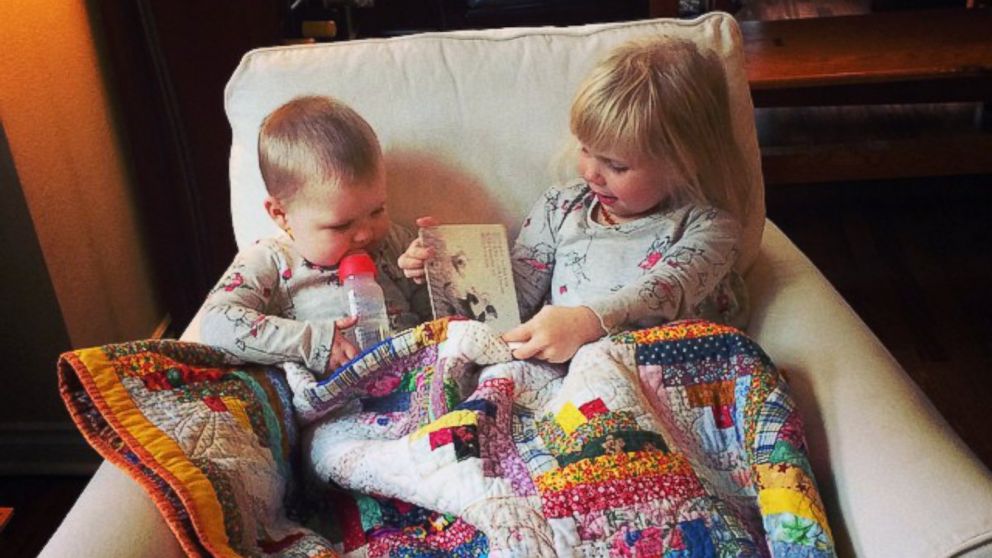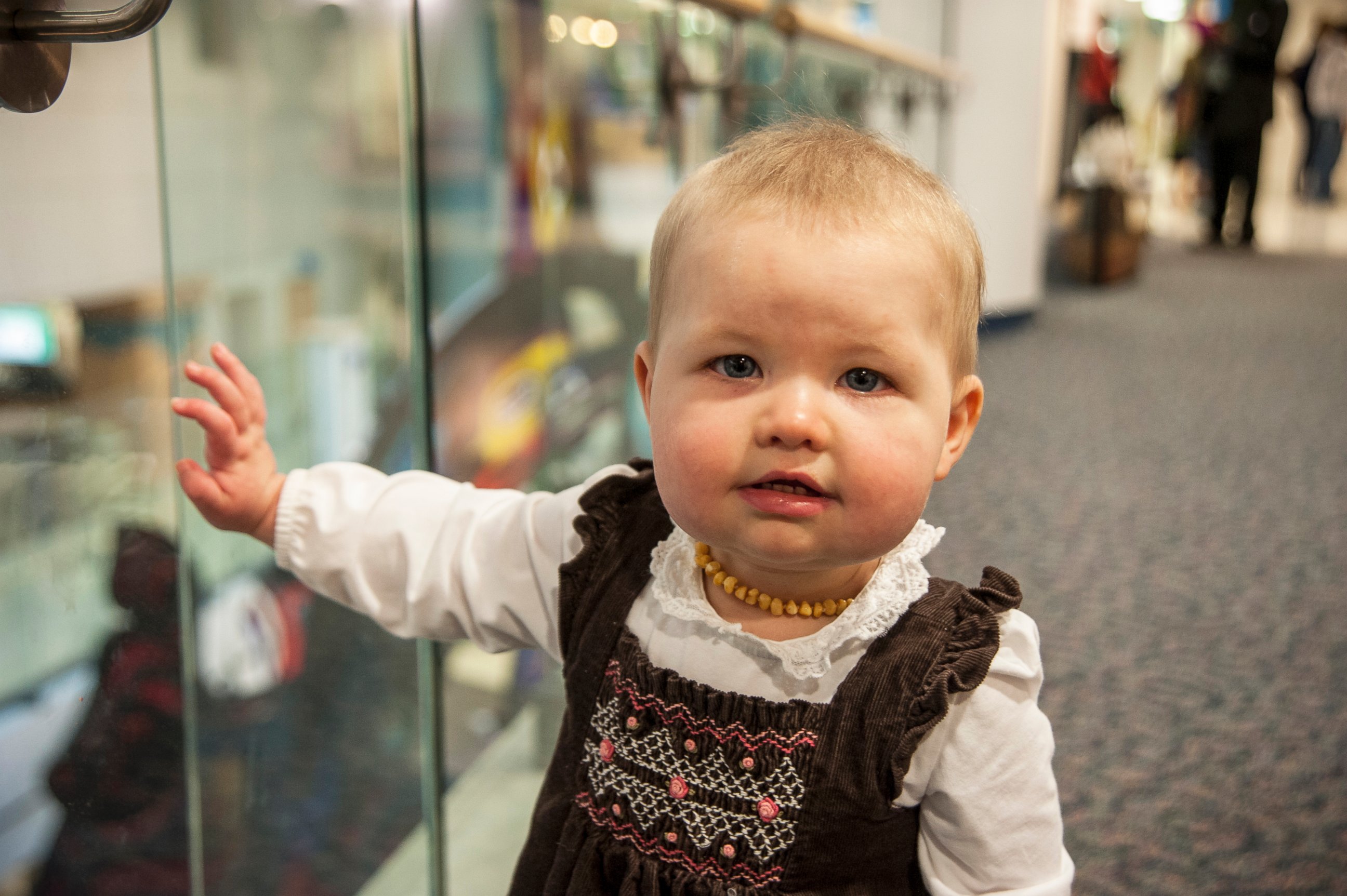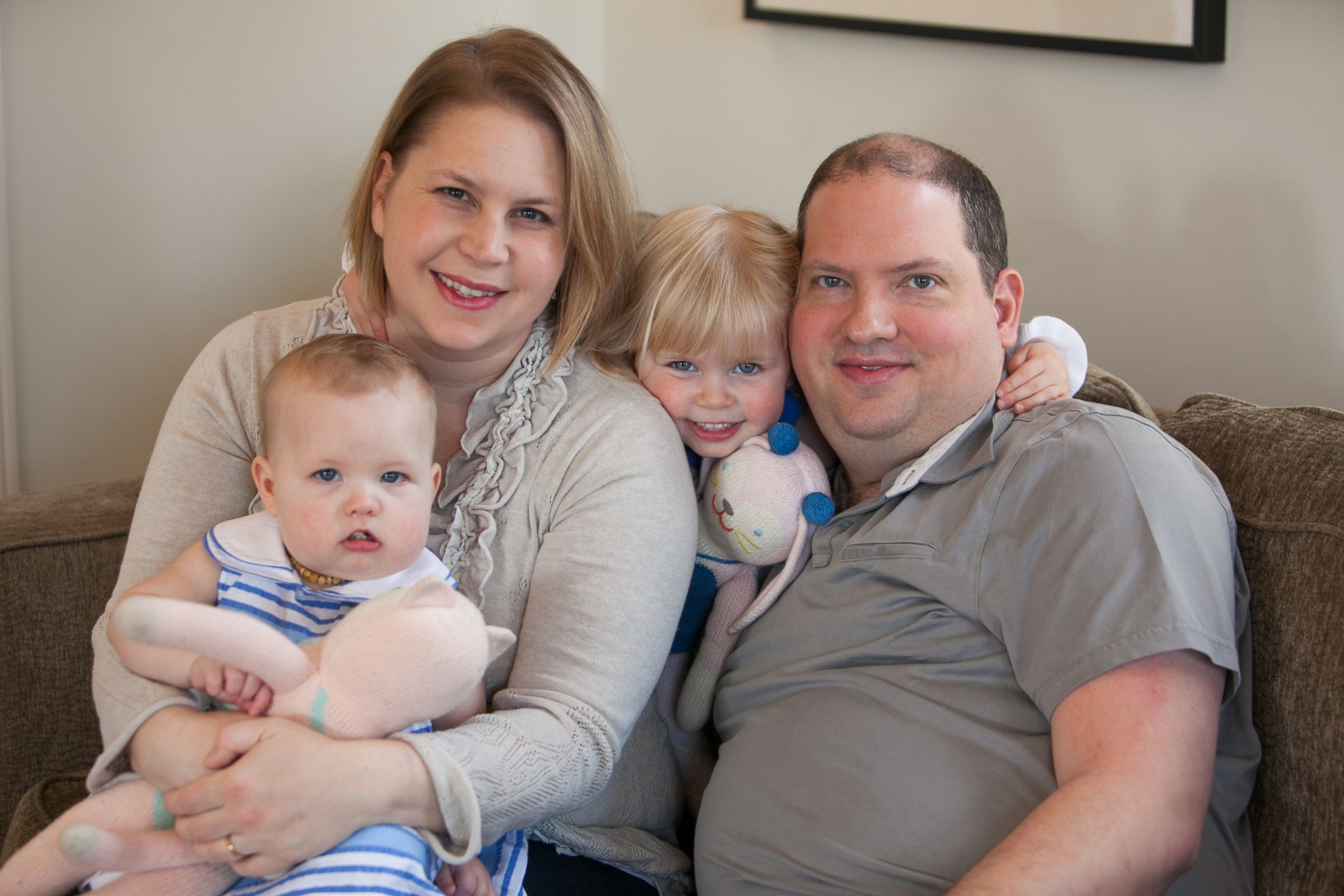Experimental Treatment Gives Hope to Leukemia Patients by 'Reprogramming' Cells
An innovative new treatment for a rare form of cancer is bringing new hope.

— -- An experimental treatment for a deadly form of cancer is bringing new hope for patients with little chance of survival.
Maggie and Andy Oberhofer had discussed hospice options for their ailing baby less than a year ago when the prognosis seemed grim, but today the couple is figuring out how to re-baby proof their home for their 21-month-old daughter, Greta, after she responded to a new leukemia treatment.
Greta has been in different treatments for acute lymphoblastic leukemia for most of her life. Diagnosed when she was 3 months old, Greta has undergone months of chemotherapy, in addition to radiation treatment and a bone marrow transplant from her older sister, Charlotte, her parents said.
Cancer patients praise, fear "The Fault in Our Stars" movie.
These cancer patients attended "pediatric prom."
Find out what led Matthew Zachary to found Stupid Cancer.
In February of this year, Greta relapsed after the transplant. Greta's doctors in Portland, Oregon, recommended the family look into participating in a small phase 1 medical trial being held at Seattle Children's Hospital aimed at treating children and young adults, who had suffered a relapse of acute lymphoblastic leukemia.
"That weekend we were thinking about it. We didn't want to put her through a whole lot more," Maggie Oberhofer recalled. The family also debated the possibility of hospice care.
The trial took T-cells of patients and "reprogrammed" them by adding recombiant DNA to their DNA so that they were tailored to fight the cancer. Pioneered by the Ben Towne Center for Childhood Cancer Research at the hospital, the treatment genetically modified the immune-response cells so that they develop a receptor that can recognize and bind to cancer cells, according to researchers.

If the cells are able to bind to cancer cells, in theory they can fight the disease similarly to how the immune system might fight off a bacterial or viral infection.
Eventually the couple decided to try the treatment, since it would likely be less painful and invasive than the treatments Greta faced before because it was her own immune cells that would attack the cancer cells. They were warned of potential complications, including brain or spinal inflammation and even the possibility of death.
A week after Greta was given her own reprogrammed cells via an IV drip, she developed a fever, which was actually a sign that the treatment was working, according to her mother. The T-cells had triggered an immune response similar to how a person would develop a cold or flu. Just weeks after the single treatment, Maggie Oberhofer saw a difference in her daughter.
"It was cuckoo. We had to re-child proof [the home]," Oberhofer said of her daughter's quick recovery. "Before this, she was sort of lethargic. ... We took her home that day and she was ripping stuff out of cupboards and throwing stuff."

Within a few months they had returned to Portland, where Greta now gets weekly treatments to bolster her immune system.
Greta is doing much better but not officially cancer-free. Extremely detailed scans have detected a minuscule level of cancer, Oberhofer noted, but Greta's T-cell count also remained high, meaning the immune response could still be fighting the cancer.
"They said you can breathe a big sigh of relief if she maintains a [high] T-cell population" for eight months, said Oberhofer. That watershed moment will come in April.




